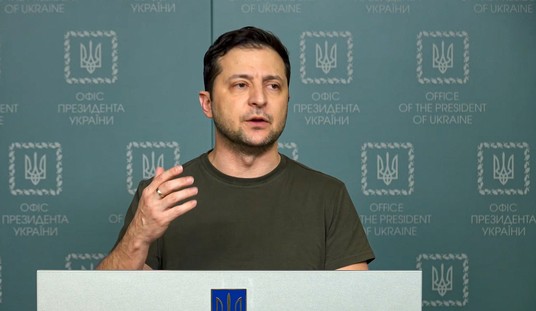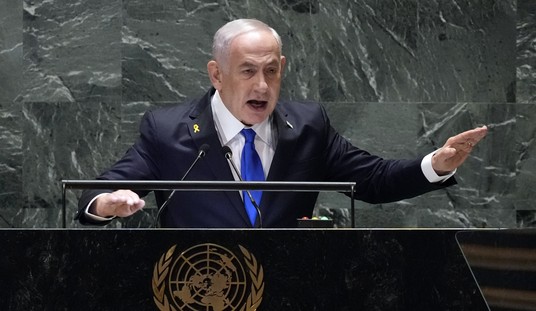I recently had the chance to interview the Israeli journalist Nahum Barnea — think Tim Russert of the Holy Land — about whether or not Benjamin Netanyahu might be thought of as “lucky.” The Likudnik prime minister, after all, enjoys a fair approval rating, virtually no parliamentary opposition, and a populace that has sided with him, if not quite enthusiastically, over the Obama administration’s insistence on a settlement freeze.
Barnea told me I had the wrong man. The lucky one in the Levant is Mahmoud Abbas, president of the Palestinian Authority. “Abu Mazen is quite happy with the status quo,” Barnea said. “The West Bank standard of living is improving, law and order is improving. He’s a head of state with none of the responsibilities of a head of state.”
If one were looking for proof of this proposition, then one need only examine Fatah’s sixth general assembly, which concluded two weeks ago in Bethlehem but received scant media coverage in the West and drew not a word from the Israeli government in response.
Though this was the first general assembly Fatah convened in twenty years, only two significant votes were taken: the first established that Israel was responsible for the death of Fatah’s heroic founder Yasser Arafat (even if no one could quite explain how Israel killed him); the second was that Abbas would remain president of both the PA and Fatah.
As Micah Halpern observed, “the vote was only in the affirmative and it was conducted by a show of hands. The intention was to make it impossible to gauge how many people neglected to raise their hands and who they are.” Other resolutions passed included the “red line” demand for a united Jerusalem — that is, as the capital of any future Palestinian state — and the endorsement of Fatah’s official armed wing, the Al Aqsa Martyrs’ Brigade, which, since the beginning of the second intifada in 2000, has killed dozens of Israelis in terrorist attacks and suicide bombings. Also dead at their hands, Mohammed Dahlan, Fatah’s former security commander in Gaza, who blamed his party’s political leadership for a failure to prevent Hamas’s 2007 coup in the Strip.
If this seems like a grandiose non-event on par with a Soviet plenary session to reaffirm the existence of proletarian dictatorship, then it’s because Abbas’ plan as the only Palestinian political leader capable of talking to Israel is to do as little talking as possible. As Abbas told Jackson Diehl of the Washington Post in May,
“I will wait for Hamas to accept international commitments. I will wait for Israel to freeze settlements. Until then,” Abbas continued, “in the West Bank we have a good reality.… The people are living a normal life.”
So they are. The International Monetary Fund has recently concluded that the West Bank’s economy has improved dramatically in the last year. Michael Oren, Israel’s newly-minted ambassador to the United States, recently pointed out in a Wall Street Journal editorial that six thousand new jobs have been created since 2008, trade with Israel has increased 82%, tourism to Bethlehem has increased 94%, and agricultural exports are up 200% — all the result of a fusion between smart Palestinian planning, the Netanyahu government’s relaxed trade policies, and its continued dismantling of military checkpoints.
There are now 10 manned roadblocks in all of the West Bank, compared to the 35 that were in place place during Ehud Olmert’s administration. Although the UN estimates over 600 “obstacles and roadblocks” still in existence, according to a June 24 report by Amos Harel in Haaretz, “the [Israeli] defense establishment has allowed several hundred Palestinian businessmen, holders of BMC (Businessman Card) permits, free access to Israel.”
Additionally, residents in Jericho can now travel throughout the West Bank unencumbered; all roadblocks surrounding Nablus have been lifted; and the only cars the IDF are bothering to inspect are those crossing the Jaba roadblock at the Adam-La Ram junction.
The Israeli military also aims to “radically reduce” its own presence in the West Bank, a happy concomitant of U.S. Gen. Keith Dayton’s success in training 2,100 members of the Palestinian security force, who have brought law and order to the territory and with it, bolstered investment opportunities. Two thousand new companies were registered with the PA in the last year, a stark contrast with the autarkic poverty that persists in Hamas-ruled Gaza.
That all of these developments have taken place under a right-wing coalition government is noticed most of all by the Palestinians themselves, though you’d be forgiven for not reading more about them in the Western press. Palestinian Prime Minister Salam Fayyad, who earned a PhD in economics at the University of Texas, has more or less conceded to Netanyahu’s “economic peace” in advance of any substantive political reconciliation, which no one expects to see anytime soon.
Fayyad told Haaretz this month that he realized that “security was the glue between a thriving economy and proper government and achieving liberty for the Palestinian people.” (On the question of whether or not Israel is a “Jewish state” — an admission Netanyahu has been adamant about getting from the Palestinians and which he has hitherto been denied officially — Fayyad sounded more Zionist-friendly than the New York Review of Books typically is: “The character of Israel, as the total character that Israel would like to have, is Israel’s own choice.”)
Abbas has all the time in the world to visit his Arab allies like Omar al-Bashir, the genocidaire-in-chief of Sudan. He watches with glee as an American president applies pressure to Israel on a matter that is only popular to the Israeli religious right. Meanwhile, his people are creating, with Israeli assistance, the fretworks for a viable, sovereign state that all participants in this geopolitical saga recognize as a historical inevitability. Is it any wonder George Mitchell found Abbas reluctant to cut a deal? As Barnea puts it, “Obama faces not one, but two, reluctant partners. He’s suddenly discovered the Middle East.”









Join the conversation as a VIP Member